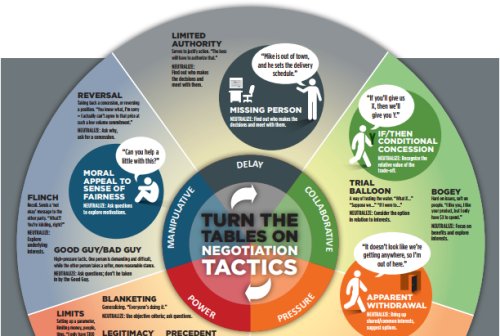When you negotiate, the questions you ask, and the manner in which you do so will determine the information you receive. That combined with the information you give, when responding to questions, will have a great bearing on the outcome of the negotiations. When negotiating, it behooves you to choose words carefully when you ask questions and to reply cautiously when you respond to questions.
When negotiating, do you find yourself doing any of the following ...
1. While at the negotiation table you're asked questions and you ramble on and on with your responses
- By doing so, more than likely, you're giving away too much information.
- You may have nervous energy, or be sending a signal that you're 'flighty'. In so doing, you run the risk of not being taken seriously.
- Your sense of focus could be somewhere else. Call a 'time out'. Take a break to get yourself under control.
- In some cases, it's better to ponder a question before responding to it. By doing so, you'll give the appearance of giving more thought to the question, and lending more importance to it.
- A savvy negotiator could deduce your lack of preparation for the negotiation. She might seek that as an entry point to continuously befuddle you throughout the negotiation, thus manipulating you more towards her goal and away from your own.
Consider the following thoughts when responding to questions ...
- Why is this information needed by the other person?
- What might they do with the information?
- How might my response to the question harm or enhance my negotiating position?
- Are there any benefits in responding to the question?
- Can I use the information I'm giving as a chit in the negotiation?
Always remember, just because you're asked a question doesn't mean you have to answer it. If you're ever in a position where you have to answer a question and you don't have a suitable response, take a 'time out'. Don't answer a question simply because you feel obligated to do so. Remember, silence can be golden. Sometimes, by being outrageously quiet when asked a question, you speak volumes ... and everything will be right with the world.
The negotiation lessons are ...
- Always be aware of the fact that, the amount of information you give when responding to a question can help or harm your negotiation position.
- Always state your response to a question in a manner that will lead towards the goal you seek.
- Determine what information you'll need before entering into the negotiation and the route best taken to obtain that information.
